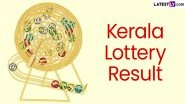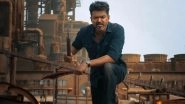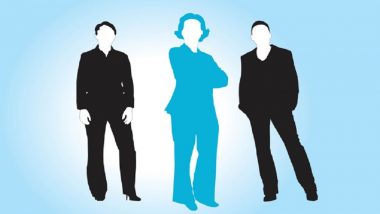As the world was confronted with the #MeToo movement in 2018 where women challenged the abuse of power by men, some women assumed positions of power themselves in what can be called baby steps towards gender equality. Let’s look at the women who are leading their respective countries as heads of government and heads of state.
In India’s immediate neighbourhood, three countries have women at their helm.
- Sheikh Hasina – Bangladesh:
Bangladesh has been led by Sheikh Hasina, the 10th and longest-serving prime minister of the country. She is the daughter of Bangladesh’s first president Sheikh Mujibur Rehman, who led the fight for the country’s liberation from Pakistan.
Her time in power has seen Bangladesh notch record high economic growth averaging over 6%. Its GDP per head is now higher than Pakistan’s, when measured at market exchange rates. It also boasts a lower infant mortality rate, higher school enrolment and longer life expectancy than its neighbours.
She has outmanoeuvred her long-time political opponent Khaleda Zia who has been barred from contesting in the upcoming general elections.
Her political achievement has been noted globally as Forbes ranked her 26th on its 2018 List of The World’s 100 Most Powerful Women.
- Bidhya Devi Bhandari – Nepal
Nepal’s current president is a woman who by dint of her position is also the commander-in-chief of the country’s armed forces. She is the first woman to hold this office in Nepal. She was first elected as President in a parliamentary vote in 2015 and was re-elected for a second term earlier this year in March.
She has also been the Minister of defence, again becoming the first woman to hold the position in Nepal.
Bhandari began her political career as a Leftist student union member through which she joined the Communist Party of Nepal - Marxist-Leninist in 1980. She has over three decades of experience as a political activist in Nepal.
- Aung San Suu Kyi – Myanmar:
Nobel Laureate Aung San Suu Kyi’s party National League for Democracy won a landslide victory in 2015 and she was named State Counsellor as she is constitutionally barred from becoming president due to her marriage to a non-Burmese national. Her post is akin to a prime minister.
Suu Kyi for long was touted as a beacon of democracy and was awarded the Nobel Prize in 1991, as "an outstanding example of the power of the powerless".
She spent almost 15 years under house arrest for her efforts to bring democracy to then military-ruled Myanmar. Her unwavering effort towards democracy made her an international symbol of peaceful resistance in the face of armed oppression.
However, after assuming power Myanmar’s military junta’s action against the Rohingya people which has in effect made them a stateless people has brought the world’s censure on Suu Kyi silence for her continued silence on the issue. This year Canada withdrew its honorary citizenship to Aung San Suu Kyi as the situation in Myanmar has deteriorated with the government doing nothing to protect Rohingya and other minority populations.
- Theresa May & Queen Elizabeth – UK
The United Kingdom currently has two women at its helm. The country is a constitutional monarchy which means that while the Sovereign – Queen Elizabeth II is the head of state, the power of legislation is wielded by the Parliament headed by the prime minister.
Queen Elizabeth II, ascended the throne on the death of her father, King George VI, on 6 February 1952. She is commander-in-chief of the British Armed Forces.
Apart from being the monarch of the UK, Queen Elizabeth II is also the monarch of 15 Commonwealth countries including Canada, Australia and New Zealand. She is also the head of the grouping Commonwealth of Nations.
Theresa May is the prime minister of UK and gained her post after she won the leadership of her party after David Cameron resigned following the pro-Brexit vote.
She is managing a minority government and was the UK’s longest serving home minister before attaining her current position. She is Britain’s second female prime minister.
May currently has the unenviable task of negotiating the country’s exit from the European Union.
- Angela Merkel – Germany
Angela Merkel has served as Germany’s Chancellor since 2005. She has been the leader of Germany’s centre-right Christian Democratic Union (CDU) since 2000 but gave up this position in 2018. She also announced she would not stand for re-election as chancellor in 2021.
Merkel has been widely described as the de facto leader of the European Union as she has been a constant presence as the economic grouping and the world at large witnessed an economic meltdown in 2008, a refugee crisis in 2015 and an impending Brexit – as the UK becomes the first country to leave the EU.
She was named the TIME’s most powerful woman in 2015 and has frequently appeared on the Forbes’ list of The World’s 100 most powerful women. In her profile, TIME says of her, “No one in Europe has held office longer—or to greater effect—in a world defined by steadily receding barriers.”
- Ellen Johnson Sirleaf – Liberia
Sirleaf was Africa’s first elected female Head of State and is known as Liberia’s Iron Lady. A Harvard alumni and having worked with corporate banks, Sirleaf came back to Liberia despite being threatened and driven out of the country.
In 2011, Sirleaf was jointly awarded the Nobel Peace Prize for her non-violent struggle for the safety of women and for women's rights to full participation in peace-building work."
She is credited with keeping peace after a decade-long war which saw more than two lakh Liberians die and more than 15 lakh abandon their country.
Many accuse of her of being corrupt and not doing enough for women but her 12 years in power saw her stabilise the country’s economy which had been wracked by misgovernance and international sanctions.
She stepped down from her position this year but was expelled from her party just days before her term came to an end.
- Sahle-Work Zewde – Ethiopia
Zewde is the first woman to hold the office of the President in Ethiopia and currently the only female serving head of state in Africa. She has had a distinguished career as an international diplomat having served as Special Representative of United Nations to the African Union and Head of the United Nations Office to the African Union at the level of Under-Secretary-General of the United Nations.
- Tsai Ing Wen – Taiwan
Tsai Ing-wen is a Taiwanese politician, and former attorney who has been Taiwan’s president from May 2016. She was the first woman to be elected to the office in Taiwan. She is also the first person to have never held an elected executive post before presidency and the first to be popularly elected without having previously served as the Mayor of Taipei.
She supports an independent Taiwan political view and has made efforts to increase the country’s ties to the U.S.
- Halimah Yacob – Singapore
Singapore swore in its first woman president and its 8th – Halimah Yacob on 14 September 2017. She was the country’s ninth Speaker of Parliament and was again the first woman to hold the position.
In her long and illustrious political career, Halimah represented Singapore in the Geneva-based International Labour Organisation for 12 years, the first Singaporean to be elected into the ILO.
In the media, she is referred to as a “down-to-earth” president with a “common-touch.” She owes her simple and unassuming demeanour to her humble origins. In her own words, she describes her childhood as being ‘poor’ and being her mother’s helper – She writes about her upbringing, “From the age of 10, my hours outside of school were spent being my mother’s assistant: cleaning, washing, clearing tables and serving customers, and I am a better person for it.”
She adds, “I have experienced poverty first-hand and know how debilitating it can be as you struggle to survive, to put food on the table and also grapple with the uncertainty of the future on a daily basis…It limits your choices but also tempers your determination to succeed. My priority then was to finish school, get a job and support my mother.”
- Jacinda Ardern – New Zealand
Jacinda Kate Laurell Ardern is the world's youngest female head of government, becoming prime minister at the age of 37. Giving birth to a daughter on 21 June 2018, Ardern became the world's second elected head of government to give birth while in office.
Her rise in New Zealand from an MP to becoming the youngest-ever leader of New Zealand’s Labour Party, was so meteoric that it earned a name: Jacindamania.
She has not shied away from combining her identity of being a female and a leader as she brought her baby and husband to the United Nations General Assembly. The baby’s presence at the UNGA led to the creation of a special UN pass for Neve Te Aroha.
(The above story first appeared on LatestLY on Dec 26, 2018 05:14 PM IST. For more news and updates on politics, world, sports, entertainment and lifestyle, log on to our website latestly.com).













 Quickly
Quickly


